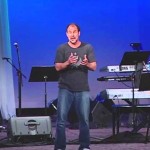We run our website the way we wished the whole internet worked: we provide high quality original content with no ads. We are funded solely by your direct support. Please consider supporting this project.
How do you respond to 1 Peter 1:20?
“[Christ] was destined before the foundation of the world, but was revealed at the end of the ages for our sake. Through him you have come to trust in God…”
This passage reveals that God created the world with Jesus Christ in mind (cf. Col. 1:15–17). The divine goal was (and is) to acquire a people who freely participate in and reflect the love of the triune God, and the plan to attain this goal was by having people trust in God through Christ. Though it is sometimes cited as evidence in support of the classical view of foreknowledge, this verse actually has nothing to say on the subject.
Category: Q&A
Tags: Open Theism, Q&A
Topics: Open Theism, Responding to Objections
Verse: 1 Peter 1
Related Reading

What is the significance of Ezekiel 33:13–15?
“[W]hen I say to the righteous he will surely live, and he so trusts in his righteousness that he commits iniquity, none of his righteous deeds will be remembered…he will die. But when I say to the wicked, ‘You shall surely die,’ and he turns from his sin and practices justice and righteousness, if a…

Sermon Clip: Does Romans 9 predestine you to Hell?
Did God predestine you to Hell? Can he even do that? In this short sermon clip, Greg Boyd talks about his own struggles when trying to understand Romans 9 which on the surface seems to imply that God determines who goes to heaven and hell. In the full sermon, Greg takes a deep look at…

How can you put your trust in a God who’s not in control of everything?
Question: I read your book Is God to Blame? and found it to be very compelling. It’s rocking my world. But I’m also finding I’m now having trouble trusting God like I used to. I used to believe that God ordained or at least foreknew all that was going to happen. Now I’m questioning this, and I’m wondering…

God’s Regrets and Divine Foreknowledge
One aspect of the portrait of God in Scripture that suggests the future is partly open is the fact that God sometimes regrets how things turn out, even prior decisions that he himself made. For example, in the light of the depravity that characterized humanity prior to the flood, the Bible says that “The Lord…

What’s the signficance of Judges 10:6-17
The Israelites rebelled against Yahweh and worshipped other gods. As a result, Yahweh withdrew his protection of them and “sold them into the hands of te Philistines and the Ammonites” (Judg. 10:6-7). The Israelites eventually acknowledged their sin and cried out to God (vs. 10) but Yahweh, perhaps perceiving that their repentance wasn’t genuine, told…

What are the main principles of the warfare worldview?
In my book God At War (IVP, 1997) I flesh out what I call the “warfare worldview” of the Bible. This is the view that the world is a battle ground between God and good angels, on the one hand, and Satan and fallen angels, on the other. In my book Satan and the Problem…
